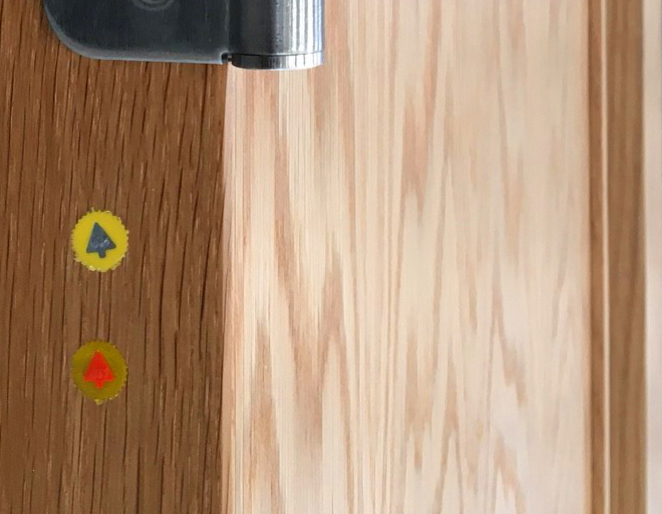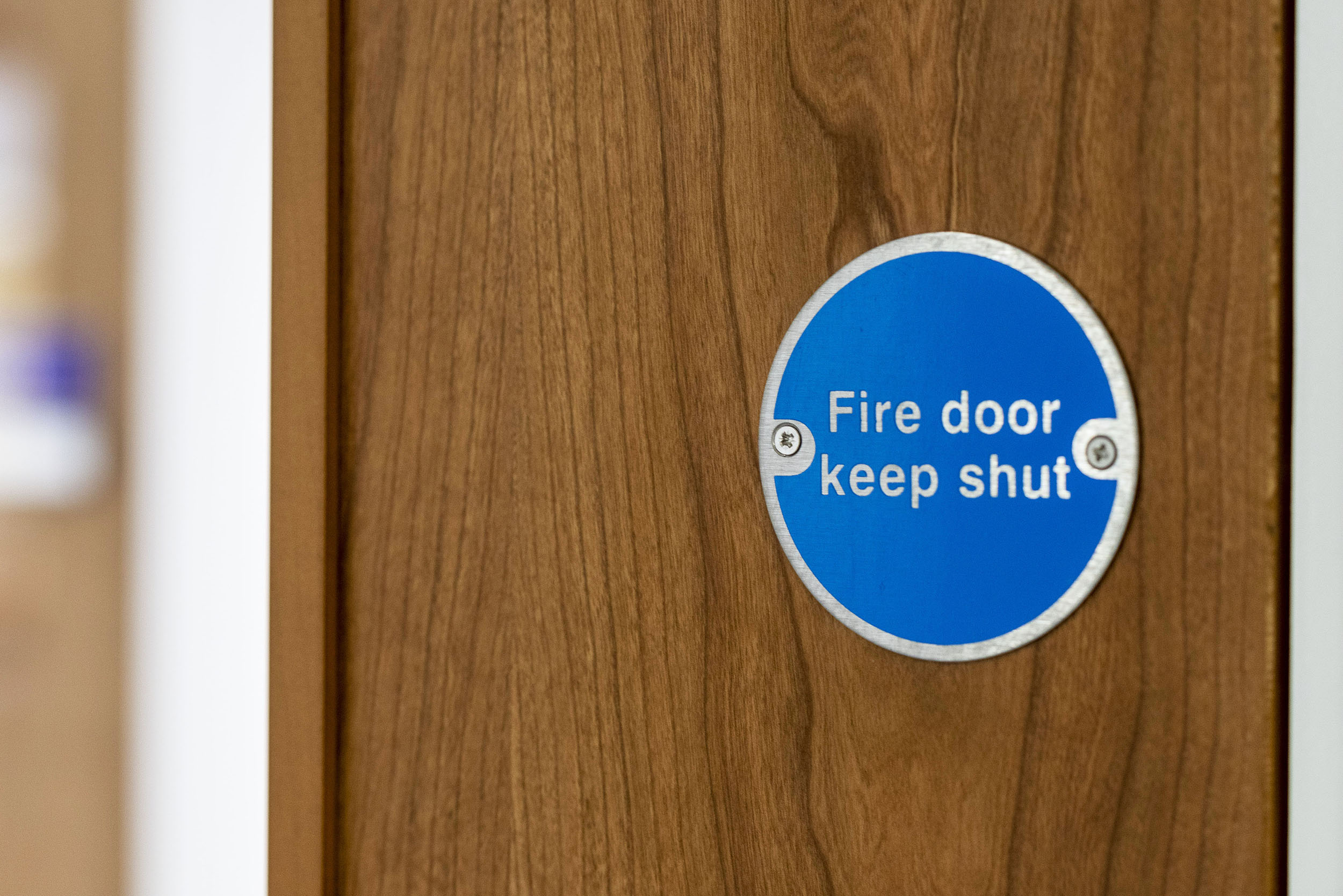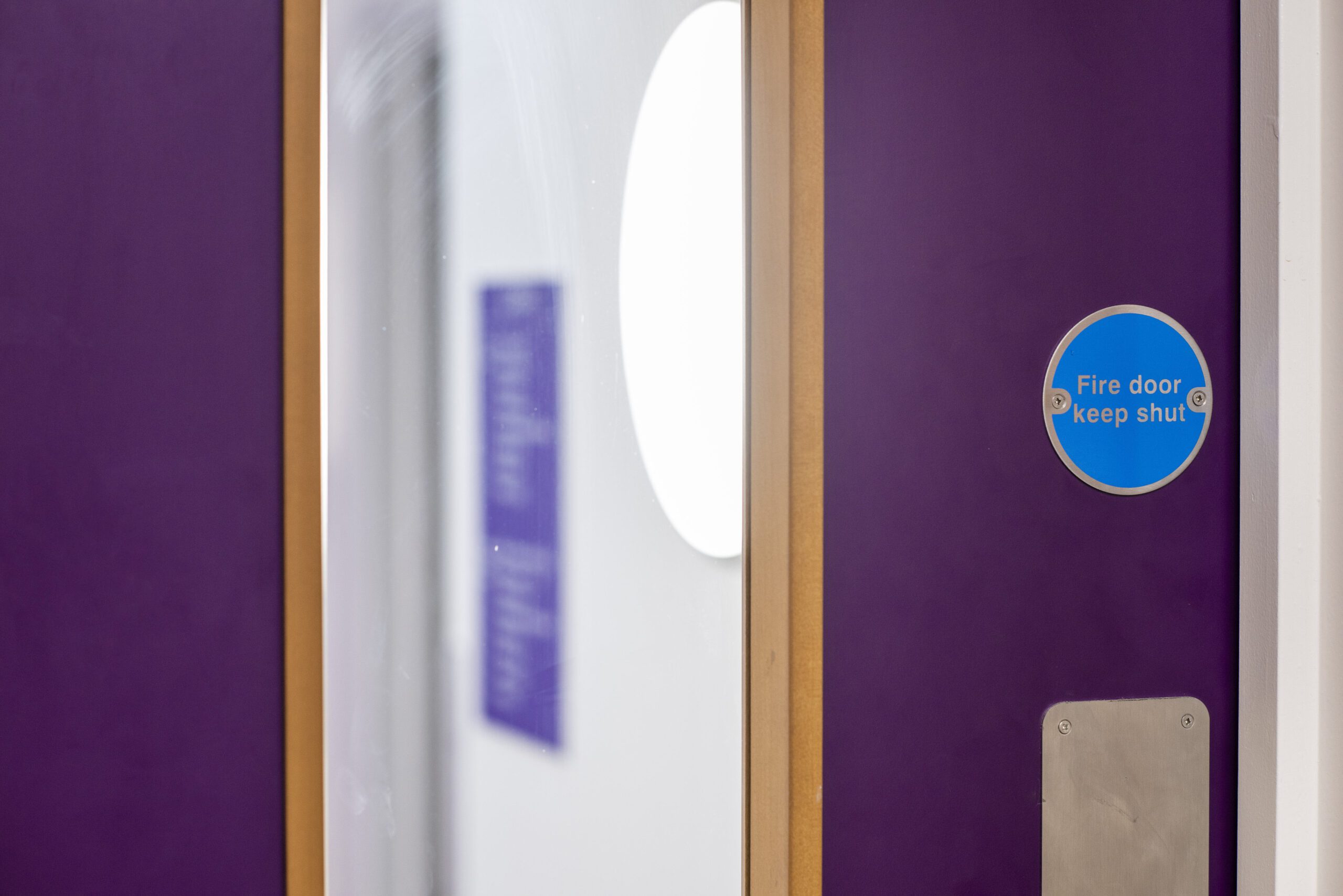Fire doors have a challenging performance specification to fulfil in providing fire resistance and smoke penetration for fire separation, compartmentation and safe escape. Surely fire doors can only be seen as safety critical? Fitness-for-purpose is especially critical since the circumstances and intensity of fire are unpredictable and uncertain. That requires careful specification and robust design with dedicated manufacturing for use, with specialist controls.
Fire resistance and smoke control are established by test. What is not always fully appreciated is that one test, or limited testing, is not enough. Where there is no generic commodity product type, where the market requires several individual designs for specific applications, then just an initial type test is simply not sufficient, especially as the specialist door product, combining several functions in one design, must be a system of several matched components and materials.
Third-party product and process certification (TPPPC) links product design and manufacturing with application, including separate certification for essential components. It serves to provide independent scrutiny of process and product related to fitness-for-use, with evaluation of manufacturer capability and scope of design, subject to test evidence. TPPPC provides levels of assurance not possible through other processes, combining factory and process control with evaluation of performance. Regular audits and audit tests together with new application tests, as those arise in product development and response to new market specifications, allow definition of a scope of application and door system design, characteristic for each manufacturer under individual certifications.
Testing in the specialist and bespoke sector is fundamental, involving many tests across the sector over several years as expertise has expanded. Each test is carried out on a foundation of accumulated test knowledge and know-how. TPPPC serves to bring the availability of test evidence within a defined scope. The body of test experience under TPPPC further allows system modifications by technical assessment within a knowledge field defined by testing, including system tests for components.
Each audit builds on previous audits, providing an inspection record. Continuity is important. Each test – whether an audit test or a development test, or a test in response to a new specification – serves to build under TPPPC the company’s specialist knowledge and door design capability for use. It allows monitoring of developments made in line with the latest thinking and technology advances, linked to market requirements.
TPPPC combines review of factory control with product assurance and scrutiny of test evidence, not just for placing on the market but essentially for use in buildings as specified. In that respect third party product and process certification for the user and specifier it effectively demonstrates company competency and quality commitment, independently providing confidence in product outputs, process controls and the robustness of product designs.



